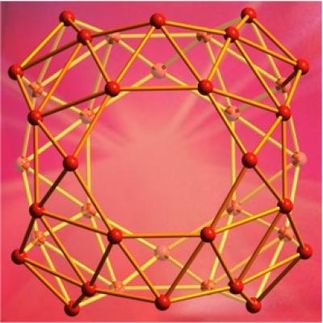Holger Braunschweig Awarded Second ERC Advanced Grant
Advertisement
Chemist Holger Braunschweig has joined an elite club of European researchers who have been awarded a second "Advanced Grant", the largest research grant offered by the European Research Council (ERC). Braunschweig will receive 2.5 million Euro in order to explore unprecedented new bonding possibilites of the element boron.
Holger Braunschweig, Professor of Inorganic Chemistry at the University of Würzburg, is an expert in the field of boron chemistry. Boron is a direct neighbour of perhaps the most well-explored element on the periodic table: carbon. While the chemistry of carbon – organic chemistry – is the foundation of life on earth and has given birth to entire disciplines and industries, the chemistry of its next-door neighbour boron is dramatically underexplored.
This situation has been evolving over the last decade, in part due to Professor Braunschweig's discoveries. His group's discovery of the first molecule with a boron-boron triple bond in 2012 was published in Science Magazine and made headlines around the world, including in a profile of Braunschweig in The Times of London. This breakthrough and other discoveries from his laboratory have repeatedly reinforced the idea that organic chemistry and boron chemistry are not as different as most people think.

Chemist Prof. Dr. Holger Braunschweig, awarded a second ERC-Advanced-Grant.
Photo: Uni Würzburg
Big support for big ideas
Braunschweig's second ERC Advanced Grant will fund a comprehensive research program based on multiple bonding between boron atoms, a phenomenon that until recently was extremely difficult to realise in a laboratory. Driving the work beyond fundamental goals are the outstanding physical properties of the compounds made in Prof. Braunschweig's group. This boron-boron multiple bonding has already been used in the synthesis of highly reactive radicals, polymers, highly-coloured and luminescent molecules, and in reactions of industrially-relevant gases such as carbon monoxide and hydrogen. The ERC funds will be used to fully exploit the unusual reactivity and properties of these molecules, with an eye towards applications in electronics and materials chemistry.























































